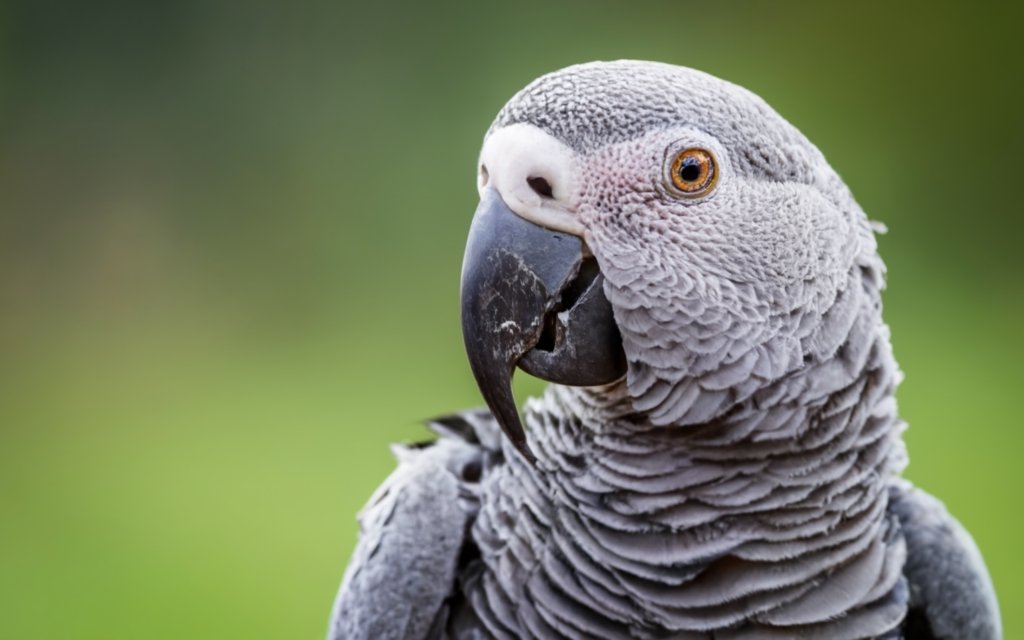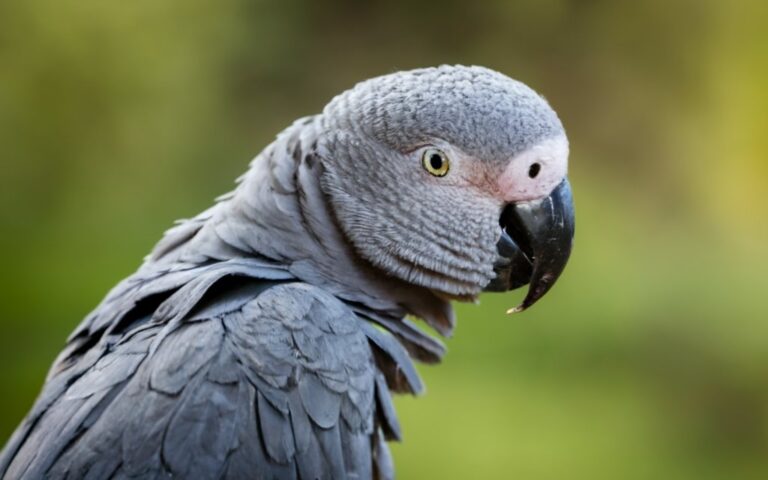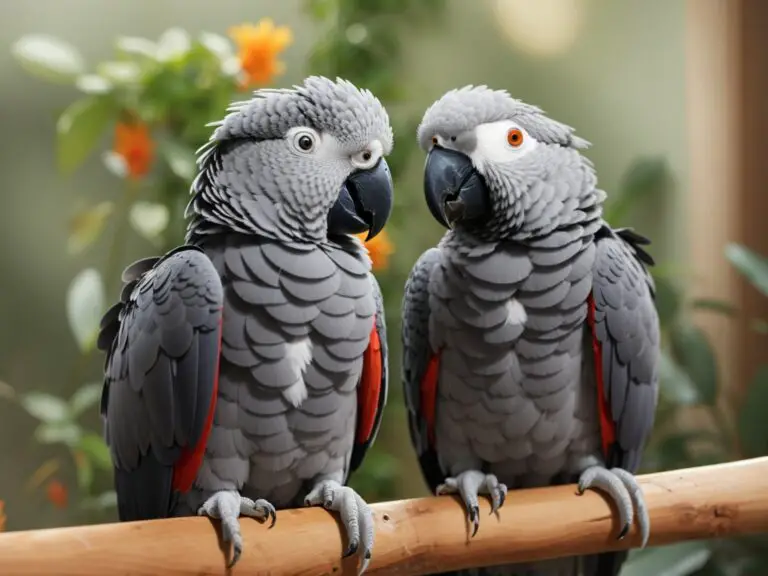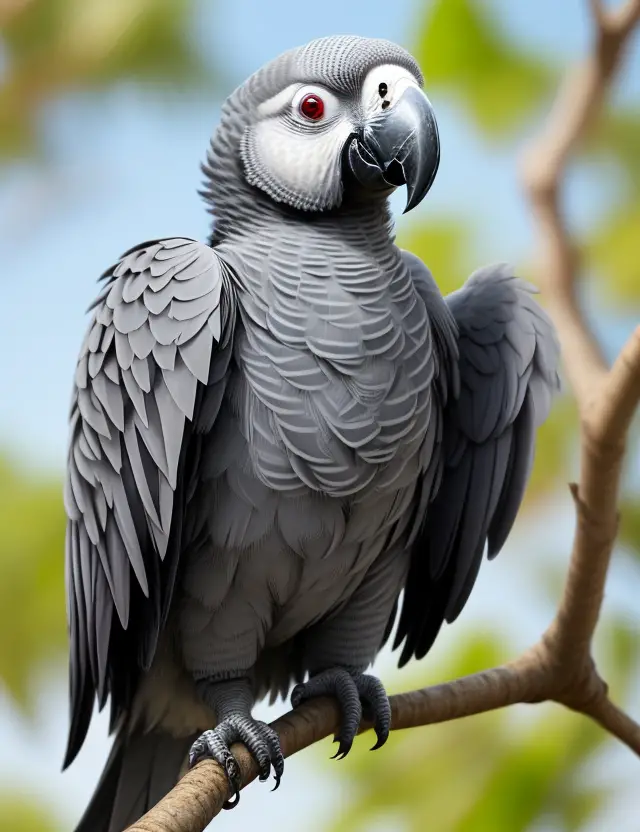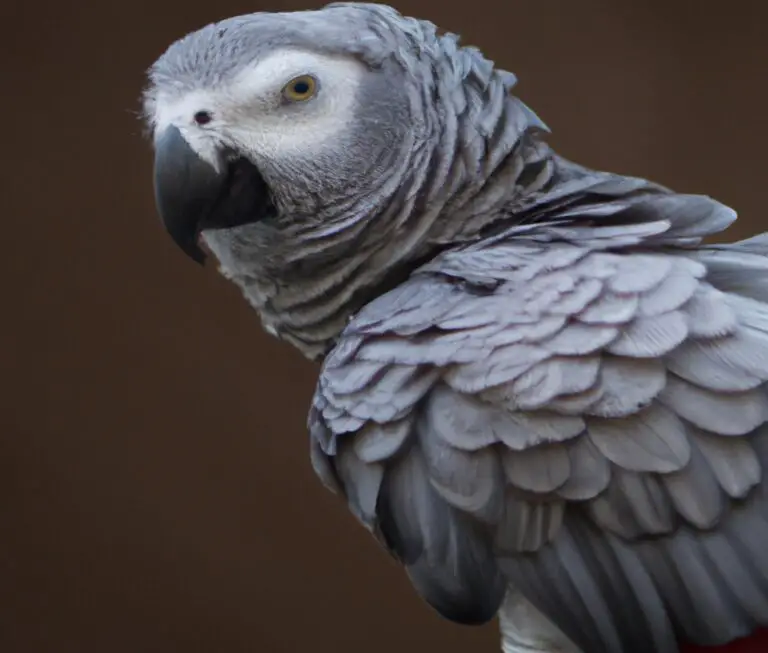How Long Can An African Grey Parrot Go Without Water?
Key Takeaways:
- African grey parrots cannot survive without water for more than a few days.
- Adequate hydration is crucial for the overall health and well-being of African grey parrots.
- It is essential to provide fresh and clean water to African grey parrots on a daily basis.
- Monitoring water intake and ensuring access to water at all times helps prevent dehydration in African grey parrots.
Have you ever wondered how long an African Grey Parrot can go without water? These mesmerizing creatures are known for their intelligence and striking appearance.
But when it comes to their hydration needs, what should you know?
Water is essential for the overall health and well-being of African Grey Parrots, just like any other living being. In this article, we’ll delve into the importance of water for African Grey Parrots, their typical water consumption patterns, and how long they can sustain themselves without this vital resource.
Get ready to discover fascinating insights about these marvelous birds and how to ensure their optimal hydration!
| Parameter | Information |
| Species | African Grey Parrot |
| Weight | 400-650 grams |
| Dehydration | Can cause severe health issues |
| Water Consumption | Approximately 10-15% of body weight per day |
| Survival Time without Water | Approximately 2-3 days |
| Factors Affecting Survival Time | Temperature, humidity, overall health |
African Grey Parrots: A Fascinating Species
African Grey Parrots are truly fascinating creatures.
Let’s explore their physical characteristics and their natural habitat and adaptations.
Physical Characteristics of African Grey Parrots
African Grey Parrots are known for their distinctive appearance. They have a medium-sized body with a short, square tail.
Their plumage is primarily gray, with a white mask around their eyes and a bright red tail.
They have a large, powerful beak that enables them to crack open nuts and seeds. These parrots also have a high intelligence level and remarkable ability to mimic human speech and sounds.
Overall, their physical characteristics make them easily recognizable and unique among bird species.
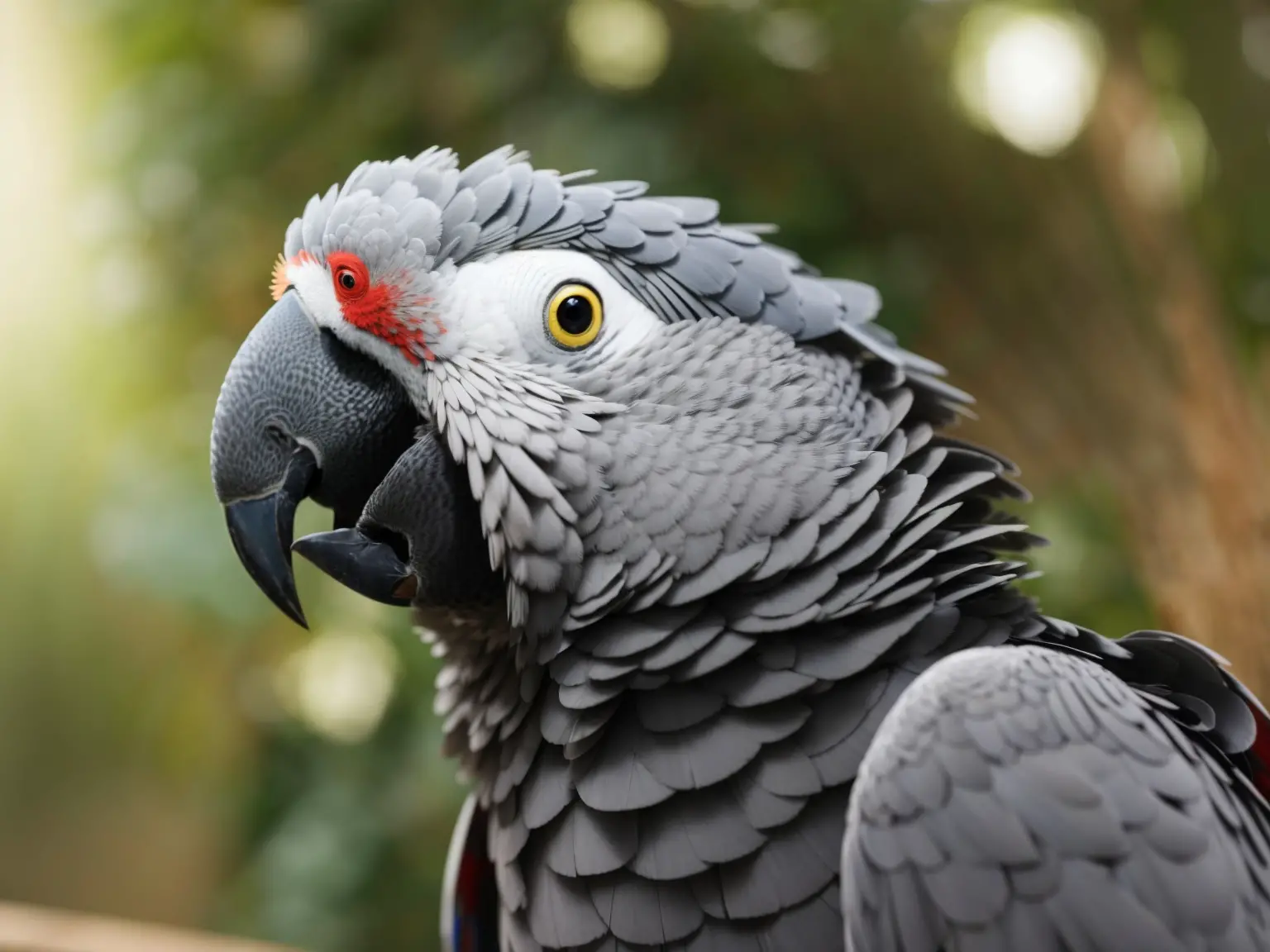
Natural Habitat and Adaptations of African Grey Parrots
African Grey Parrots are native to the dense rainforests of Central and West Africa. They have adapted to this environment by developing certain characteristics.
Their gray feathers help them blend in with the trees, while their short, sturdy beaks allow them to crack open tough nuts and seeds.
They also have strong legs that enable them to traverse the tree branches and use their feet to grasp and manipulate objects. These adaptations allow them to thrive in their natural habitat.
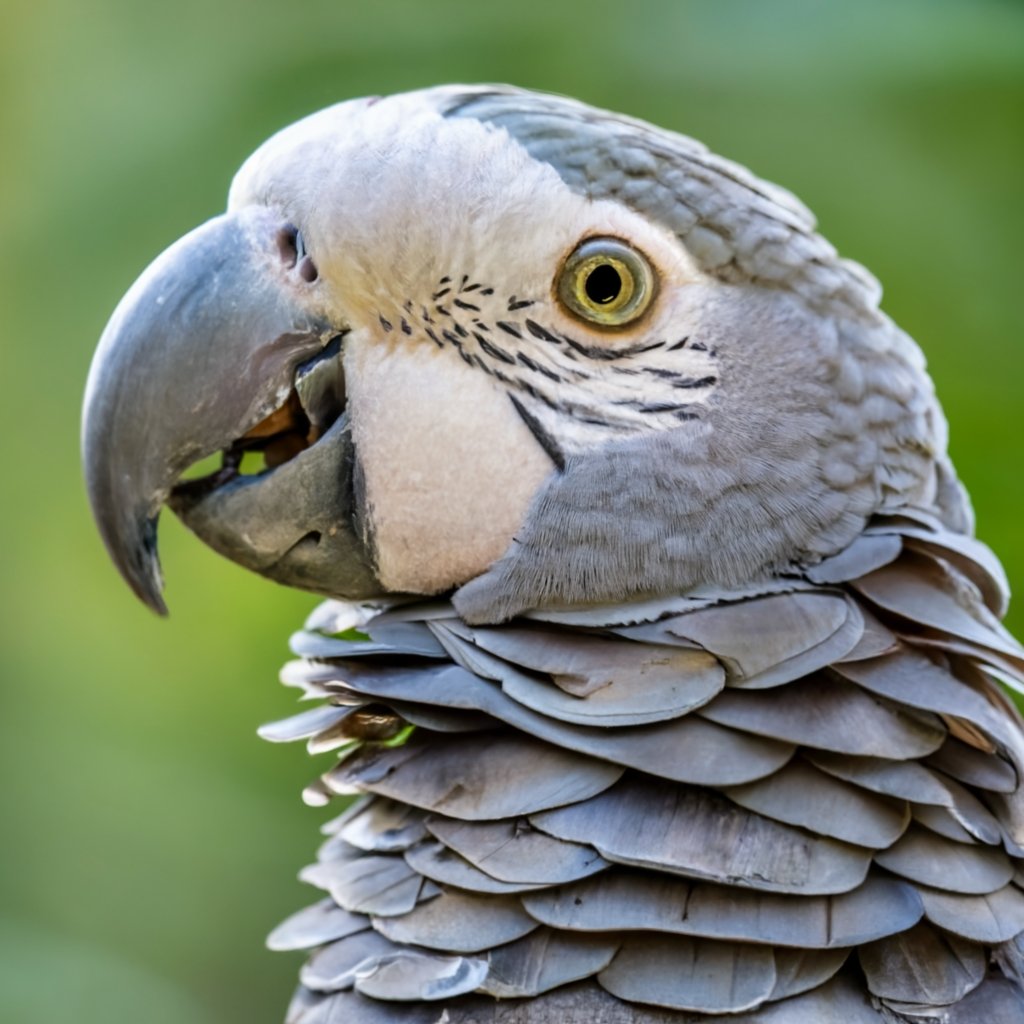
Understanding the Importance of Water for African Grey Parrots
Water is crucial for the health and well-being of African Grey Parrots, just like any other living creature.
The Role of Water in Bird’s Body
Water plays a vital role in a bird’s body.
It is essential for various physiological functions, including digestion, metabolism, and temperature regulation.
Water helps in breaking down food, absorbing nutrients, and eliminating waste.
It also helps in maintaining a bird’s body temperature through evaporation and cooling effects.
Additionally, water is involved in lubricating joints, moistening tissues, and supporting overall cellular function.
Without enough water, a bird’s body cannot function properly, leading to dehydration and potential health issues.
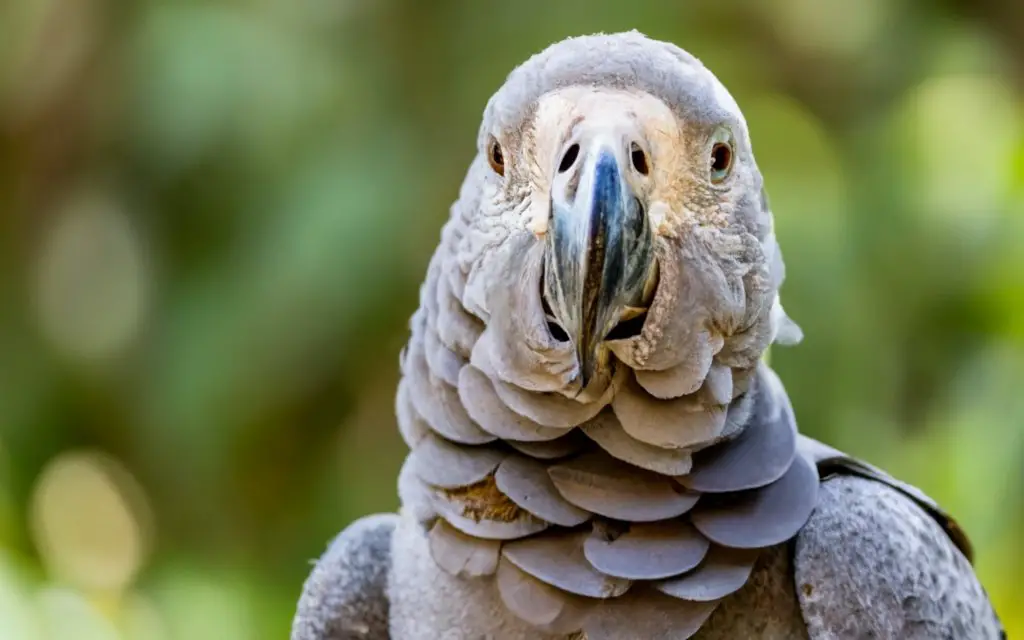
Hydration and Its Significance for African Grey Parrots
Hydration is extremely important for African Grey Parrots as it plays a crucial role in maintaining their overall health and well-being.
Water is essential for various bodily functions, including digestion, circulation, temperature regulation, and waste elimination.
Adequate hydration ensures proper organ function, healthy feathers, and a strong immune system.
African Grey Parrots should have access to clean and fresh water at all times to prevent dehydration and promote optimal health.
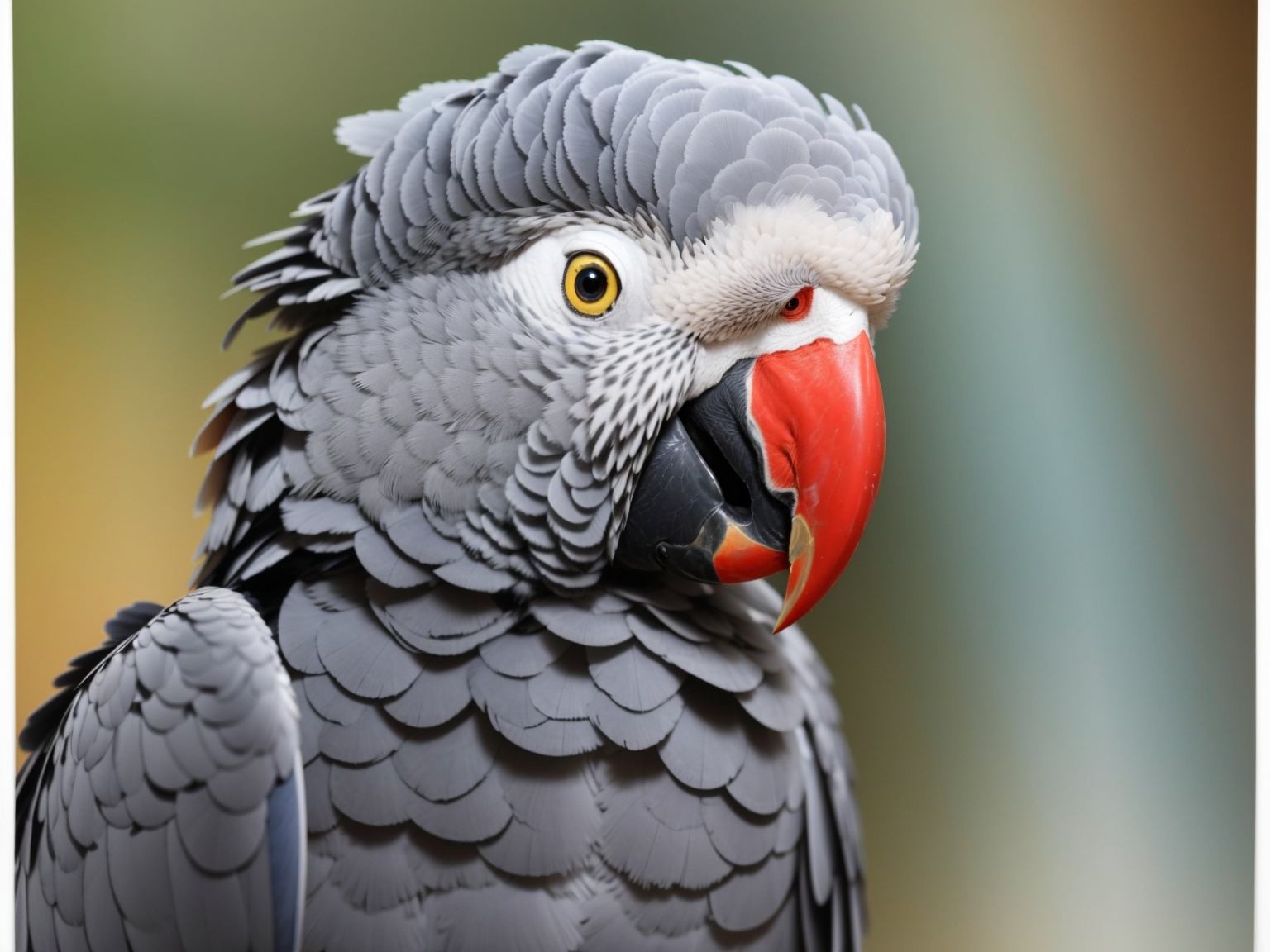
Water Intake Recommendations for African Grey Parrots
African Grey Parrots should have access to clean, fresh water at all times.
They need to stay hydrated to maintain their overall health and well-being.
As a general guideline, it is recommended to provide about 10-20% of their daily diet as water.
Regularly monitor the water intake of your parrot and ensure that it doesn’t go without water for more than a few hours.
Also, remember to change the water daily to keep it clean and free from any contaminants.
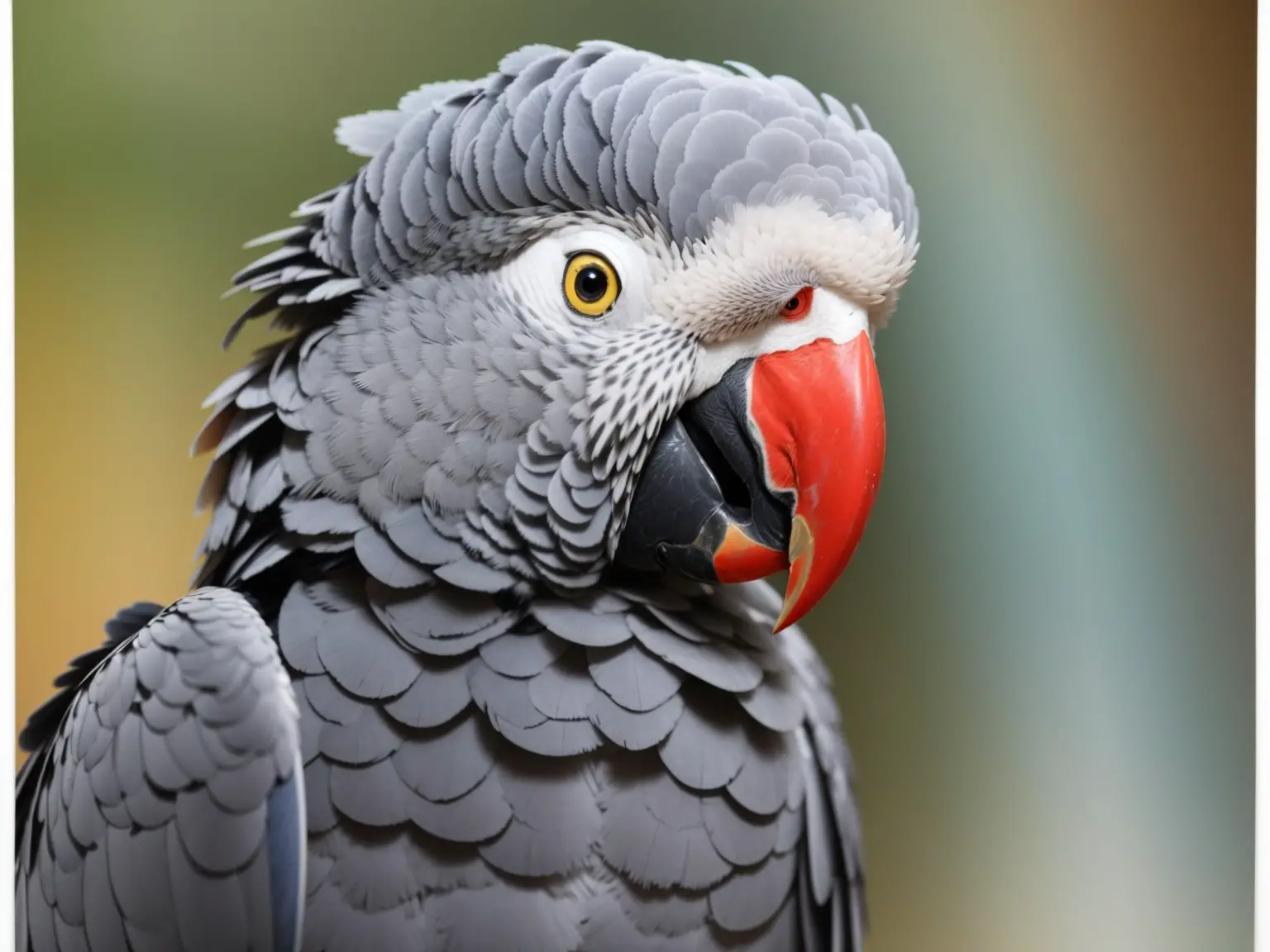
Typical Water Consumption Patterns in African Grey Parrots
African Grey Parrots typically have a consistent and moderate water consumption pattern.
Typically, African Grey Parrots drink water throughout the day in small amounts.
Daily Water Requirements of African Grey Parrots
African Grey Parrots have a daily water requirement of about 10% of their body weight. For example, if your parrot weighs 400 grams, it will need around 40 milliliters of water per day.
It’s important to provide clean and fresh water in a suitable water dish or bottle.
Monitoring their water intake and ensuring they have access to water at all times is crucial for their overall health and well-being.
Factors Affecting Water Consumption in African Grey Parrots
Several factors can affect the water consumption of African Grey Parrots.
One important factor is the bird’s diet.
If their diet primarily consists of dry foods, they may need to drink more water to stay hydrated.
The temperature and humidity of their environment also play a role in their water intake.
Hotter climates or dry environments can increase their need for water.
Additionally, the age, size, and activity level of the bird can impact their water consumption.
Monitoring these factors can help ensure that your African Grey Parrot stays properly hydrated.
Monitoring Water Intake in African Grey Parrots
Monitoring water intake in African Grey Parrots is crucial to ensure their optimal hydration.
By observing their drinking habit, you can assess if they are consuming enough water.
Keep an eye on their water bowl and note any changes in their usual intake.
Also, pay attention to signs of dehydration, such as dry skin or increased thirst, as these can indicate a need for more water.
Regular monitoring will help you keep your parrot hydrated and healthy.
How Long Can an African Grey Parrot Go Without Water?
African Grey Parrots can only survive for a short time without water due to their high hydration needs.
Natural Water Sources for African Grey Parrots
African Grey Parrots primarily rely on natural water sources in their native habitats.
These sources include rivers, streams, lakes, and puddles.
The parrots will drink from these sources and also use them for bathing purposes.
It is important to note that providing clean and fresh water for your African Grey Parrot is crucial for their overall health and hydration.
Survival Mechanisms of African Grey Parrots in the Wild
African Grey Parrots have developed several survival mechanisms to thrive in their natural habitat.
They have excellent camouflage abilities, blending with their surroundings to avoid predators.
These parrots also possess strong beaks to crack open hard nuts, which constitute a significant part of their diet.
In addition, they have the ability to mimic sounds and voices, which helps them communicate and stay safe in the wild.
Their intelligence and problem-solving skills further contribute to their survival by enabling them to find food and navigate their environment efficiently.
Risks and Effects of Dehydration in African Grey Parrots
Dehydration in African Grey Parrots can have serious risks and effects on their health. Here are some key points to keep in mind:
- Dehydration can lead to organ failure and even death in extreme cases.
- It can negatively impact a parrot’s digestion, causing constipation or blockages.
- Dehydration can result in a weakened immune system, making the parrot more susceptible to infections and diseases.
- It can lead to fatigue, weakness, and decreased activity levels.
- Dehydrated parrots may experience dry skin, brittle feathers, and overall poor feather condition.
- Lack of water intake can affect the parrot’s vocal abilities, leading to changes in their speech or diminished vocalizations.
- Dehydration can also cause changes in the parrot’s behavior, including irritability or aggression.
- During molting, dehydration can delay the process and result in improper feather growth.
Remember, providing clean and fresh water regularly is crucial to prevent dehydration and maintain your African Grey Parrot’s overall health and well-being.
The Maximum Time an African Grey Parrot Can Go Without Water
African Grey Parrots can typically survive without water for around 2 to 3 days. However, it is important to note that this is not a recommended or healthy timeframe for them to go without water.
Adequate hydration is crucial for their overall well-being and avoiding dehydration-related health problems.
Ensuring Optimal Hydration for African Grey Parrots
To ensure optimal hydration for your African Grey Parrot, it’s important to provide clean and fresh water and encourage regular water consumption.
Providing Clean and Fresh Water
To provide clean and fresh water for African Grey Parrots, it is important to follow these steps:
- Clean the water dish daily: Regularly wash the water dish with mild dish soap and rinse it thoroughly to remove any residue. This helps prevent the growth of harmful bacteria.
- Use filtered water: Provide filtered or bottled water instead of tap water, as it may contain contaminants that can be harmful to your parrot’s health.
- Avoid adding supplements: Do not add any additives or supplements to the water, as they can alter the taste and discourage your parrot from drinking.
- Replace water frequently: Replace the water in the dish at least once a day to ensure freshness. Parrots prefer clean water and may refuse to drink if it is stale or dirty.
- Provide multiple water sources: Place water dishes in different areas of the cage to give your parrot easy access to water. This helps encourage them to hydrate frequently throughout the day.
Encouraging Water Consumption in African Grey Parrots
To encourage water consumption in African Grey Parrots, it’s important to provide clean and fresh water at all times.
Make sure the water is easily accessible and placed in a secure and stable container.
You can also try using a water fountain or misting the feathers to stimulate your parrot’s interest in drinking.
Offering a variety of water sources like water bowls, bottles, or bird baths can also help.
Additionally, incorporating fresh fruits and vegetables with high water content into their diet can contribute to their overall hydration.
Signs of Dehydration in African Grey Parrots
African Grey Parrots can show several signs of dehydration.
Look out for dry and sticky beaks, sunken eyes, fluffed-up feathers, decreased droppings, loss of appetite, and a lack of energy.
It’s important to act quickly if you notice any of these signs and seek veterinary care to ensure your parrot’s well-being.
Frequently Asked Questions About African Grey Parrots and Water
How often should I change my African Grey Parrot’s water?
You should change your African Grey Parrot’s water daily to ensure its cleanliness and freshness.
Birds can easily contaminate their water with feathers, droppings, or food particles, so regular changes are necessary to maintain their health and well-being.
Can African Grey Parrots drink other liquids instead of water?
African Grey Parrots should primarily drink water to stay hydrated and maintain their health. Water is crucial for their bodily functions.
While they may occasionally consume small amounts of other liquids like fruit juice, it’s important to note that these should never replace their water intake.
Fresh, clean water should always be their main source of hydration.
How can I tell if my African Grey Parrot is dehydrated?
To determine if your African Grey Parrot is dehydrated, there are some signs you can look out for.
These include:
- Dry and sticky beak: A dehydrated parrot may have a dry, sticky beak instead of the usual smooth and moist texture.
- Sunken eyes: Dehydration can cause the eyes to appear sunken or dull, indicating a lack of adequate fluid intake.
- Thickened saliva: Check for thickened saliva or decreased saliva production, which can be an indication of dehydration.
- Weight loss: Dehydration can lead to weight loss in parrots. Monitor your bird’s weight regularly to identify any fluctuations.
- Reduced activity and lethargy: Dehydrated birds may exhibit reduced energy levels and appear less active than usual.
- Loss of appetite: A decrease in food intake can be a sign of dehydration. Keep an eye on your parrot’s eating habits.
- Dry, flaky skin: Dehydration can cause the skin to become dry and flaky. Check for any changes in your parrot’s skin condition.
Final Verdict
Water is an essential component of an African Grey Parrot’s overall health and well-being. While they have adaptations that allow them to survive for short periods without water, it is crucial to ensure they have access to clean and fresh water at all times.
Dehydration can have severe consequences for these birds, including organ failure and even death.
By understanding the importance of hydration and taking proactive measures to provide optimal water intake, we can ensure the longevity and vitality of these fascinating parrots.

